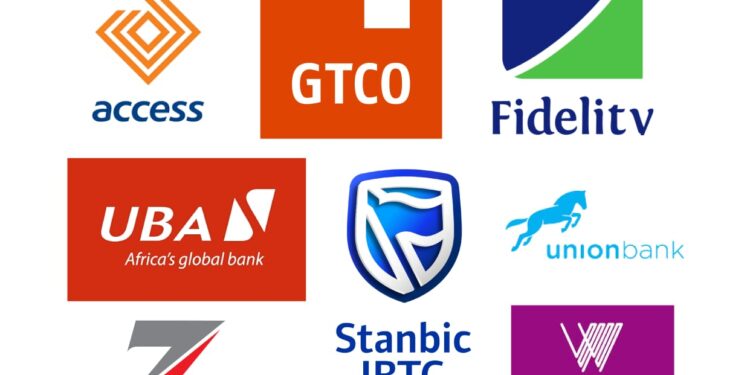Nigeria’s banking sector has displayed remarkable resilience and financial strength, with at least six of the top banks in the country posting a collective profit growth of 214 percent, reaching N2.06 trillion during the period ending in September 2023. This impressive financial performance stands in stark contrast to the economic headwinds that have characterized the operating environment in the nation.
According to findings by RateCaptain, based on the financial statements submitted to the Nigerian Exchange Limited, these financial institutions achieved an extraordinary jump of N1.4 trillion in profits during the review period when compared to the same period in 2022.
The six major banks included in this financial surge are Access Holdings Plc, Zenith Bank International, United Bank for Africa (UBA), Guaranty Trust Holding Company Plc (GTCO), FBN Holdings, and Stanbic IBTC Holdings.
The report reveals that all of these banks experienced triple-digit growth in their profits, led by Zenith Bank, which saw its total comprehensive income increase by an astonishing 412.55 percent, reaching N647.74 billion, up from N126.37 billion. UBA closely followed with a remarkable 287.18 percent increase in profits to N109.25 billion.
GTCO recorded an impressive 181.87 percent increase in profits, reaching N367.41 billion from N130.35 billion. FBN Holdings also performed admirably, reporting a 159 percent increase in profits to N236.50 billion. Stanbic IBTC saw a significant profit rise of 97.96 percent, reaching N109.25 billion. Among these six lenders, Access Holdings displayed the lowest percentage increase at 82.92 percent, achieving a profit of N250.44 billion from N136.91 billion in Q3 2022.
This positive trend in the banking sector has emerged following the Central Bank of Nigeria’s harmonization of the segments of the currency market in mid-June. While the real sector grappled with rising borrowing costs and foreign exchange losses, banks have thrived. This financial strength led the Central Bank to issue a directive in September, urging commercial banks to refrain from utilizing their foreign exchange revaluation gains for dividends and operational expenditures.
The Central Bank’s letter, dated September 11, 2023, explained that the recent changes in the foreign exchange rate regime could significantly impact the Naira values of banks’ foreign currency assets and liabilities.
In addition to the remarkable profit growth, the value of the assets of these banks appreciated by 43.57 percent, reaching N83.55 trillion, compared to N58.19 trillion at the end of the 2022 financial year. An increase in their loan books played a significant role in the rising value of assets over the nine-month period.
Reacting to the increase in the assets of the banks, Professor Segun Ajibola, a former President and Chairman of the Council of the Chartered Institute of Bankers of Nigeria, emphasized the crucial role banks play in boosting the economy. He noted that while the effects of their lending might not be immediately evident, they will yield positive results in the long term.
Lagos-based economic analyst Moses Ojo also highlighted that the macroeconomic situation in Nigeria is unlikely to have a substantial impact on banking activities. He explained that the core function of a bank is lending, and the prevailing macroeconomic headwinds have not significantly hindered banks’ ability to lend, as they maintain a reasonable level of liquidity.
In summary, Nigeria’s banking sector’s robust financial performance in the face of economic challenges demonstrates its resilience and significant contribution to the country’s economic stability and growth.










